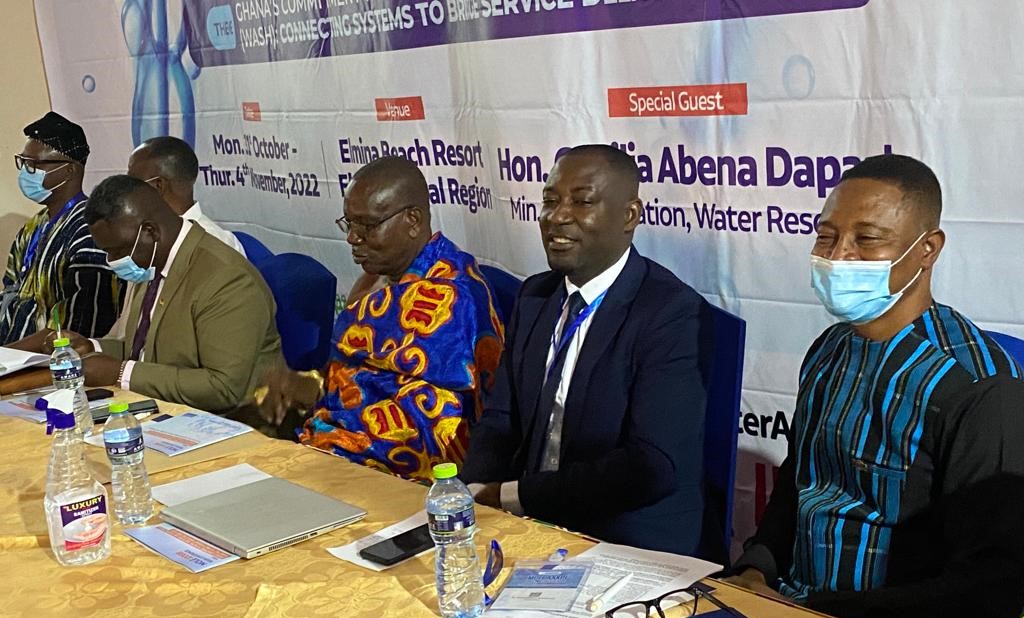By Florence Afriyie Mensah/Victoria Agyemang
Elmina (C/R), Oct 31, GNA – Mr. Yaw Atta Arhin, Chairman, Ghana Coalition of Non-Governmental Organisations in Water and Sanitation (CONIWAS) has emphasised the need to reflect on the mix of interventions and systems required on water and sanitation services in Ghana.
He expressed worry about the pollution of water bodies through illegal small-scale mining (galamsey) sand-winning and other nefarious activities that inhibit the efforts to achieving the universal goals of safe water.
Also, poor access to toilets in households, schools and other public places were unacceptable in the 21 century, thus needed collective approach to address the issues.
Mr. Arhin made the call 33rd annual MOLE Water, Sanitation and Hygiene (WASH) Conference, which took off on Monday.
The conference urged stakeholders to actively resolve critical issues confronting Ghana’s water and sanitation sector.

The five-day conference is being held on the theme: “Ghana’s Commitment to Water, Sanitation and Hygiene (WASH): Connecting Systems to Bridge Service Delivery Gaps.”
Mr Yaw Atta Arhin emphasised that, “the conference is not for lamentations but rather the time for action..”
According to him, the theme was carefully selected to reflect the complex mix of interventions and the systems required to deliberate on sustainable WASH services to the people of Ghana, particularly the poor and vulnerable.
Discussions will centre on Ghana’s WASH commitment toward achieving national and the Sustainable Development Goal six (SDG6) target for Water, Sanitation, and Hygiene in the country, explore area-wide approaches to service delivery that addresses equity concerns and promotes sustainable WASH Delivery for everyone.
It will also discuss options for delivering sustainable WASH services to deprived and undeserved communities in Ghana, highlight innovative partnerships with education, health, economic and environment sectors in delivering cost effective, affordable, and inclusive WASH services.
In Ghana, about 74.7 percent of households lacked access to improved toilet facilities that are not shared with 17.7 percent of the population still practicing open defecation.
The inequalities according to him, were much more pronounced as all the five Regions in Northern Ghana had open defecation rate higher than 50 percent.
Savannah and Upper East Regions recorded open defecation rates of 68.5 percent and 68.4 percent, respectively.
The Chairman of CONIWAS commended the Government for partnering the private sector to progressively achieve a clean, healthier, and prosperous Ghana.
He said the construction of the solid and liquid waste treatment facilities in Accra and Kumasi and ongoing waste treatment facilities in all the regional capitals were evident of stronger partnership between the sector and the government.
Among the participants were representatives drawn from the Ministry of Sanitation and Water Resources, Greater Accra Metropolitan Area Sanitation and Water Project (GAMA), United States Agency for International Development (USAID), Ghana Water Company Limited, Plan International and United Nations Children’s Funds (UNICEF).
Others were Zoomlion Ghana Limited, Community Water and Sanitation Agency, Environmental Service Providers Association and Water Aid.
GNA